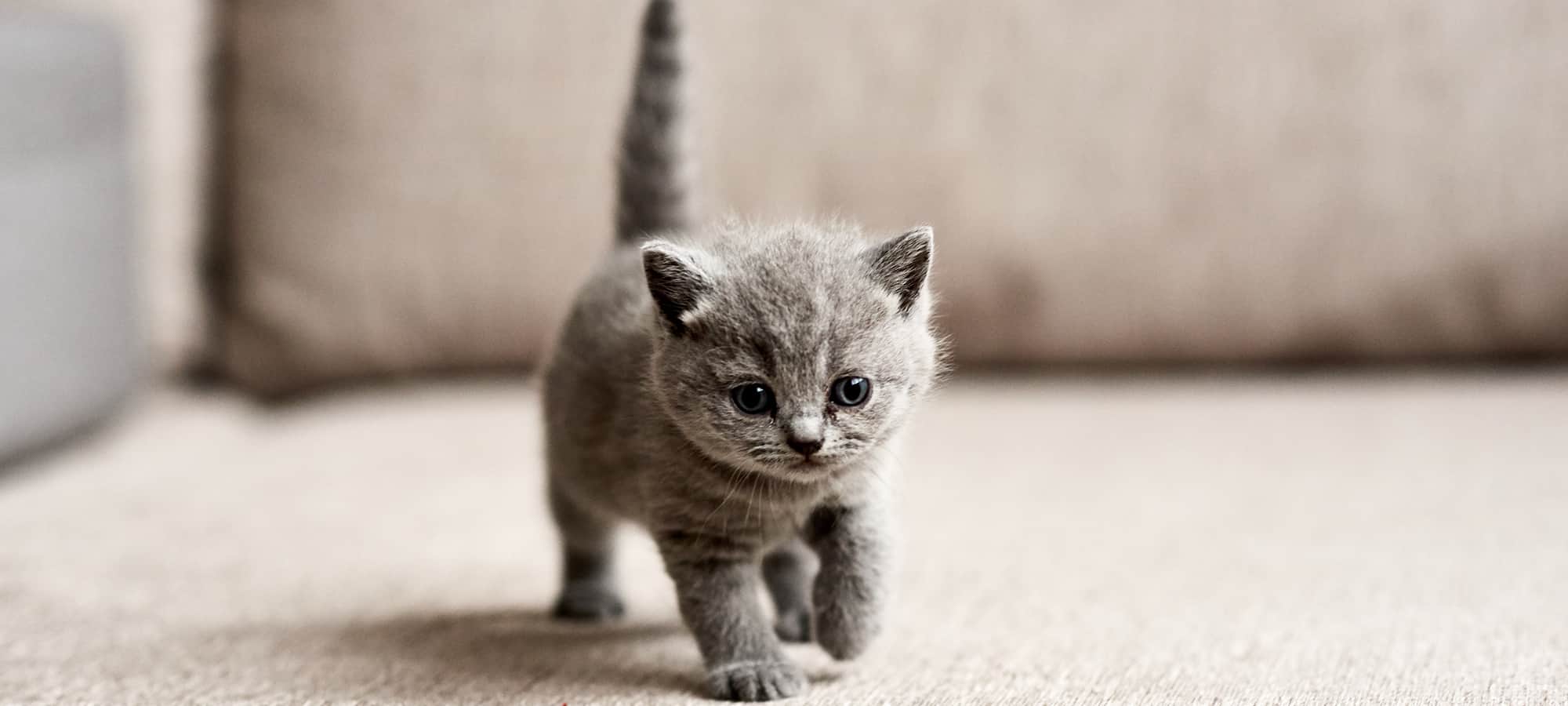Kittens are adorable and lots of fun and as a new pet parent there are many things you need to do to maintain their health and wellbeing. In their first year, kittens will need to visit a vet several times for vaccinations, desexing and preventative health care. One important thing to consider before your kittens first vet visit is whether they will be an indoor or outdoor cat. As outdoor cats are more at risk of certain infectious diseases, your decision will make a difference to the healthcare your cat will require.
So what essential health care does your new kitten need?
Vaccinations
Vaccination is the best way to protect your kitten from infectious diseases. Most of the diseases we vaccinate against have no specific cure. Or, where treatment is available it can be prolonged, costly and often unsuccessful. Kittens require a course of vaccinations starting from 8 weeks of age to 12 weeks of age. After this initial course, yearly boosters are essential to maintain immunity and annual visits to the vets provide an opportunity to discuss any issues or concerns you may have about your pet’s health.
All cats should be vaccinated against Panleucopenia and the three organisms that cause Cat Flu; Feline Rhinotracheitis virus, Calicivirus and Chlamydia Psittaci. We strongly recommend vaccination against Feline Aids (FIV) and Feline Leukaemia (FeLV) to all outdoor cats (even if they just go outside into the garden now and again). These diseases are transmitted from cat to cat via grooming, fighting and mating and cause severe illness and early death.
Desexing
Desexing is a surgical procedure performed under general anaesthesia, which prevents sexual and reproductive behaviour and related health and behaviour problems. In males the surgery, called a Castration, involves the removal of the testicles. In females the surgery, called a Spey, involves the removal of both the ovaries and the uterus. The best time to desex your kitten is between 3 and 6 months of age.
Intestinal Worming
Intestinal Worms are common and can cause serious illness. Not only do worms make your pet sick, they represent a serious health risk for humans as well. Children especially are most at risk of infection as they are often closest to the family pet.
As well as worming against the common worms; Whipworm, Hookworm, Roundworms and flea tapeworms, your cat needs to be wormed against a tapeworm called Spirometra Erinacei. These worms are unique to coastal areas North of Sydney and are contracted from the ingestion of lizards and geckos.
Unfortunately, cat wormers available at the supermarket/pet shops are not sufficient to kill this particular tapeworm. A stronger dose of wormer is needed. We recommend you purchase these tablets from a vet to ensure your pet is fully protected.
Kittens should be regularly wormed at 2, 4, 6, 8, 10 and 12 weeks of age, then monthly until they are 6 months old. From 6 months cats should be wormed every 3 months. Many cat owners struggle to worm their pet (or give medications at all!) so if you’re having problems we can assist you.
Tick prevention
Cats only get one type of tick, the deadly Paralysis Tick. During feeding, the tick releases a neurotoxin which interferes with muscles and nerves causing life threatening paralysis. Treatment for tick paralysis is available, however it’s not always successful and prevention is definitely better than a cure. We recommend you use prevention all year round so have a chat with our vets and nurses about the best product available for your kitten as soon as possible.
Flea Prevention
Fleas can be a major issue for pet’s and their owners. These blood sucking parasites are not only a nuisance but cause considerable discomfort. When controlling fleas it is important to treat not only the adult flea but the juvenile stages in the environment as well. There are numerous products available to prevent fleas (some also include tick control) so have a chat with us about the best product available.
Feeding your cat
Good nutrition is essential in keeping your cat healthy. Combined with exercise and veterinary check-ups, feeding a well-balanced diet to your cat promotes healthy teeth, skin and coat, strong well developed bones, bright clear eyes, good muscle tone, firmer smaller stools, increased energy as well as improved quality of life and longevity. We recommend Hill’s Science Diet range which has been developed to provide a large range of health support for your pet.
In the wild, kittens and cats tend to graze, eating up to 20 small meals a day rather than larger meals twice daily. Choosing a dry food means you can give the daily portion required in the morning and let them feed at will throughout the day.
Always ensure clean fresh water is available. Cats don’t need to drink milk but if you do want to give your cat milk use kitten milk to minimise problems like diarrhoea.
As a pet owner you are responsible for not only your kitten’s health but their behaviour as well. Contrary to popular belief, cats can be trained. Whilst this isn’t as easy as training a dog, your cat can be taught tricks. This could be walking on a lead, sitting on demand or even the game of fetch. The first training you’ll want to give your cat will be in using a litter tray.
Here’s some tips that may help:
- Place your cat and two clean litter trays (the kind without a cover) in a confined area. Generally cats like more than one box to toilet in.
- If your cat ‘goes’ outside of the tray, place the waste in the litter tray. (The smell of the waste encourages the cat to start using the box.)
- Usually within a day or two of being confined with the litter trays the cat will begin to use them regularly.
- If your cat isn’t using the boxes within a couple of days, try placing the cat in the litter tray after eating. Then scratch the surface of the litter with your fingertip.
- If it’s still a no-go make sure the trays are clean and try different types of litter. Placing the litter trays in a quiet area also may help.
Occasionally an underlying medical condition can be the cause of a cat’s reluctance to use a litter tray. If nothing seems to work, please call us.
How we can help
At Cairns Veterinary Clinic you can enjoy a range of benefits and discounts to help you keep your pet healthy. You can do this by simply joining our platinum paws club.
Simply have your cat’s vaccinations at either of our clinics and your pet will be rewarded with a free 12 month membership to our exclusive club. You will be able to access some great benefits to make your pet’s healthcare more affordable.
For more information about our platinum paws club, see our website or call us on 4032 9999.
Cairns Veterinary Clinic is proud to have been caring for Cairns furry family members since 1966. With 2 convenient locations, Pease Street and Norman Street, Gordonvale, our clinics are staffed by a great team of hard working and dedicated veterinary professionals who treat your pets as if they are their own.
With a vet available 24/7 365 days per year, we are always here when you need us. Contact our friendly staff for all your pet’s healthcare needs.





